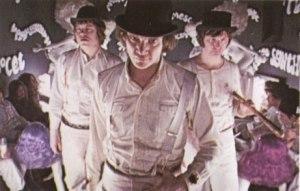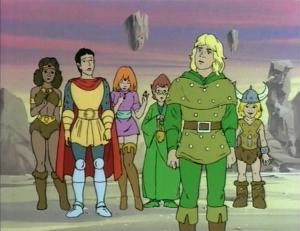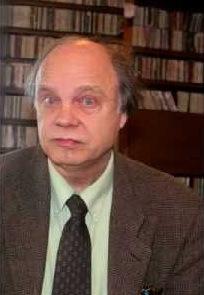There is no doubt in my mind that the game Dungeons and Dragons is causing young men to kill themselves and others. - Thomas Radecki
Every so often I run into an item in which prostitution somehow intersects with some other subject in which I’m interested, and because this one brings together several such topics – censorship, moral panics, infantilization of adolescents, prohibitionist lies, social constructionism, the drug war and Dungeons & Dragons – I just had to do an article on it despite the fact that it’s several months old.
 Thomas Radecki has made a lifelong career out of minding other people’s business. As a young man, he felt the best path by which he could accomplish this was psychiatry: he graduated from Ohio State in 1973 and pursued his specialization in psychiatry, receiving his license to practice in 1977. In 1980 he founded the National Coalition on Television Violence, one of the earliest of the “watchdog” groups which became so popular with puritans in that decade; its rationale was that people (especially teenagers) are infinitely-malleable putty whose minds are warped by portrayals of violence (and sex, though that doesn’t appear in the group’s name) on television and other media. The way he claims to have come to this conclusion is quite interesting:
Thomas Radecki has made a lifelong career out of minding other people’s business. As a young man, he felt the best path by which he could accomplish this was psychiatry: he graduated from Ohio State in 1973 and pursued his specialization in psychiatry, receiving his license to practice in 1977. In 1980 he founded the National Coalition on Television Violence, one of the earliest of the “watchdog” groups which became so popular with puritans in that decade; its rationale was that people (especially teenagers) are infinitely-malleable putty whose minds are warped by portrayals of violence (and sex, though that doesn’t appear in the group’s name) on television and other media. The way he claims to have come to this conclusion is quite interesting:
…his concern stemmed from his days in medical school, when he went to the movie A Clockwork Orange then saw a nurse and ”had this fantasy of me kicking and beating” her. He became convinced that violent entertainment could trigger real violence and warp attitudes to the point that ”we are taking a serious chance of causing the end of the world”…
His proposed solution? “…mandatory announcements on television saying violent entertainment is harmful.” Even among prudes, however, he was viewed as an extremist; Sam Simon of the Telecommunications Research and Action Center said Radecki’s “tendency to overstate things and exaggerate damages his credibility,” and Peggy Charren of Action for Children’s Television described his strategy as “the Chicken Little approach.” Perhaps she had the wrong barnyard fowl in mind; in a review of the Disney Channel Radecki said, “I was particularly disturbed by the Donald Duck and his nephews cartoons …”
 But it was a different cartoon which eventually brought him to my attention. In 1983 the Dungeons and Dragons show premiered; like most ‘80s cartoons it was basically a commercial intended to get kids interested in a line of toys (or in this case, the popular role-playing game I had already been enjoying for three years). The (laughably bad) show seems to have done its job with Radecki, but in the wrong way; his interest took the form of an obsessive hatred for the game manifesting in a campaign to get it banned by convincing everyone that it caused murder and suicide. Radecki claimed to have personally investigated “8 or 9 cases of death due to role-playing games, and…[to have] familiarity with over 130 more”. He demanded that a warning be broadcast during each episode of the cartoon “stating that Dungeons & Dragons had been linked to real life violent deaths”, and testified to that effect as an “expert” witness in at least 12 criminal trials (all unsuccessful). His “evidence” largely consisted of incredibly tenuous connections (such as D&D books being present in the room of a teen who committed suicide), except when it was entirely fictional (such as a fictitious letter from the scare-novel Mazes and Monsters).
But it was a different cartoon which eventually brought him to my attention. In 1983 the Dungeons and Dragons show premiered; like most ‘80s cartoons it was basically a commercial intended to get kids interested in a line of toys (or in this case, the popular role-playing game I had already been enjoying for three years). The (laughably bad) show seems to have done its job with Radecki, but in the wrong way; his interest took the form of an obsessive hatred for the game manifesting in a campaign to get it banned by convincing everyone that it caused murder and suicide. Radecki claimed to have personally investigated “8 or 9 cases of death due to role-playing games, and…[to have] familiarity with over 130 more”. He demanded that a warning be broadcast during each episode of the cartoon “stating that Dungeons & Dragons had been linked to real life violent deaths”, and testified to that effect as an “expert” witness in at least 12 criminal trials (all unsuccessful). His “evidence” largely consisted of incredibly tenuous connections (such as D&D books being present in the room of a teen who committed suicide), except when it was entirely fictional (such as a fictitious letter from the scare-novel Mazes and Monsters).
Fortunately for gamers, Radecki was by then widely recognized as a liar and a fraud; researchers whose studies he had misrepresented made public statements denouncing his interpretation of their work, and the University of Illinois School of Medicine debunked his claim to be a member of its faculty (he was not a teacher but rather a temporary, unpaid, volunteer advisor for a short time in 1983). He quickly fell out of favor after 1985, and in December of 1992 his license to practice psychiatry was revoked by the state of Illinois due to ”allegations of inappropriate sexual activity…with one of his female patients”; at that time he also he resigned leadership of NCTV.
 But really compulsive busybodies just can’t let it go; deprived of his license to interfere in people’s lives via psychiatry, he decided to pursue another effective route of control by getting a law degree in 1998. He was also on the boards of various anti-drug and pro-censorship organizations throughout the ‘80s and ‘90s (including Tipper Gore’s infamous PMRC) and owned a fertility clinic called the Surrogate Parenting Institute. As a lawyer Radecki fought to have his medical license reinstated, finally succeeding in 2002; he then moved to Pennsylvania to specialize in addiction therapy. His probation ended in 2008, but his neuroses got him in trouble again last year:
But really compulsive busybodies just can’t let it go; deprived of his license to interfere in people’s lives via psychiatry, he decided to pursue another effective route of control by getting a law degree in 1998. He was also on the boards of various anti-drug and pro-censorship organizations throughout the ‘80s and ‘90s (including Tipper Gore’s infamous PMRC) and owned a fertility clinic called the Surrogate Parenting Institute. As a lawyer Radecki fought to have his medical license reinstated, finally succeeding in 2002; he then moved to Pennsylvania to specialize in addiction therapy. His probation ended in 2008, but his neuroses got him in trouble again last year:
…Thomas E. Radecki has agreed to the permanent voluntary surrender of his medical license…[for] over-prescribing patient medications and trading prescription drugs for sex…Authorities executed search warrants at Radecki’s offices in…late June. Evidence was also seized from [his] home…Radecki specialized in treating patients who are addicted to heroin and highly addictive pain pills through the use of a controversial prescription medication called Suboxone…The case remains under investigation by the Attorney General’s Office…
In the final analysis, I think it’s safe to say that the demons Radecki imagined he saw in cartoons, games and television shows were nothing more than the ones which have driven him to anti-social behavior for over 30 years.
